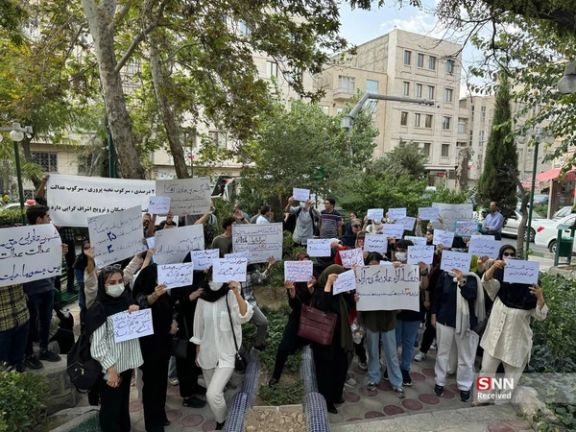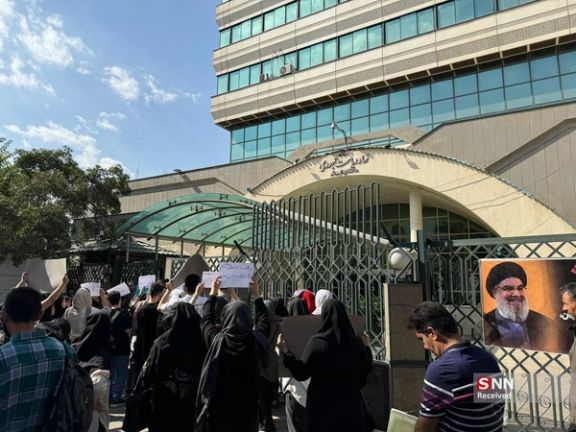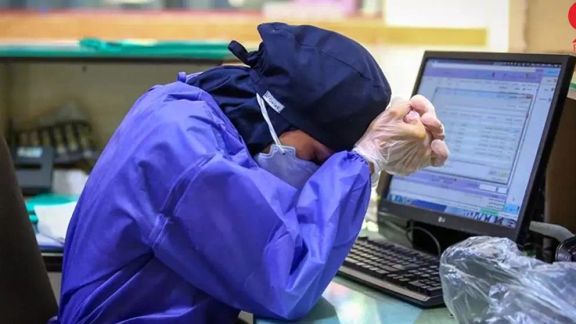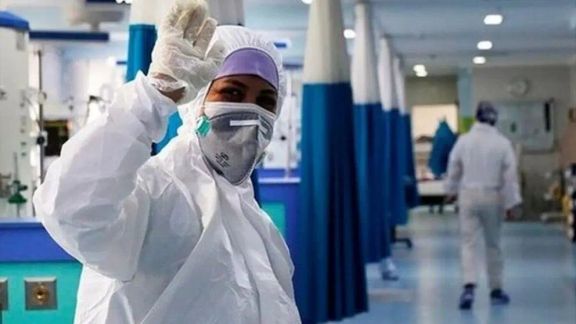Iranian medical students protest as tuition triples

Iranian medical students are protesting a sudden tuition hike at Islamic Azad University taking fees to triple the price while the country endures an economic crisis.

Iranian medical students are protesting a sudden tuition hike at Islamic Azad University taking fees to triple the price while the country endures an economic crisis.
The students in faculties of medicine, dentistry, pharmaceuticals and veterinary science, already grappling with inflation and rising costs of living, took to the streets in protest of the hike which is usually closer to 10-25% annually.
"Someone help us! The 300 million rial (about $500) tuition for medical science programs has suddenly tripled, and now we are stuck with no way forward or back," one medical student at a protest rally on Saturday said, summing up the frustration felt by many.

Over the past week, students have staged several protests in front of key government buildings including the Ministry of Health, the Secretariat of the Supreme Council of the Cultural Revolution, and the Presidential Office. Placards carried by demonstrators asked questions like, "Why wasn’t the threefold increase announced? Is Azad University for elites or the wealthy?"
The protests began after tuition fees for medical students surged from 300 million rials (about $470) to 900 million rials (about $1400) per semester without prior notice.
Nazanin Abbasi, the secretary of the student council at Islamic Azad University in Mashhad, voiced her concern, stating, “The tuition has suddenly tripled to 900 million rials per semester, amounting to roughly 20 billion rials (over $31,000) for the entire program. This is in stark contrast to the monthly salary of a medical resident, which is only 15 million rials ($235)."
In response to the outcry, Mohammad Ghorbani, the spokesperson for Islamic Azad University, tried to justify the tuition increase and denied it was tripled. "Tuition increases at Islamic Azad University typically range between 10 to 25 percent, but this time, the increase for medical sciences was nearly double. The reason for the increase is tied to annual inflation and the high costs of educational infrastructure and medical equipment." His comment contradicts the information provided by students.
He added that over 70% of students have already paid their fees, while only 5-6% are protesting. Despite this, the discontent is palpable among the student body, especially considering the deteriorating state of the Iranian economy.
Ali Shirazi, a journalist speaking to Iran International, explained that as families already struggle with inflation and daily necessities, the abrupt tuition hike places an additional burden on them. Over one third of Iranians have been pushed below the poverty line since in the latest recession which has seen the currency massively devalued.
"This increase comes without any additional benefits for the students," Shirazi said. "There’s no new technology, no international professors, and the infrastructure remains outdated due to ongoing sanctions."
The Progressive Students group condemned the tuition hike, criticizing the commercialization of education. "What is happening now is unprecedented. The corrupt officials at Islamic Azad University have rushed to exploit high-demand medical fields, suddenly tripling already high tuition fees," the group stated.
They calculated that medical students will have to pay around 20 billion rials over seven years to become doctors, a figure far out of reach for the majority of families in Iran.
Students and experts alike argue that this move prevents working-class families from accessing medical education, making it a field reserved for the elite.
Niyayesh Nowruzadeh, another medical student, pointed out that the tuition last year was 320 million rials, and they had been expecting a 25-30% increase. Instead, they were shocked when the university announced the new 900 million rials fee.

Adding to the students' frustration, the Iranian government recently issued a directive prohibiting the sale of 'service obligations' that would allow graduates to pay off their mandatory service years. The move is seen as a way to hold graduates' diplomas hostage and prevent them from leaving the country, as many young professionals are looking for better opportunities abroad due to Iran’s economic, social, and political instability.

At a protest on Saturday in front of the Ministry of Health, students voiced their discontent with the new directive. "The government is taking actions to take the university degrees of the graduates hostage to prevent their exodus from the country," said Mohsen Moheimani, an expert on Iranian affairs, in an interview with Iran International.
"The health ministry has announced that the service obligation of the students to serve in hospitals must not be sold to them anymore, using this trick to prevent them from leaving as the healthcare system faces a shortage of staff."
Meanwhile, the Tehran Prosecutor’s Office has vowed to take action against institutions facilitating student emigration.
Valiollah Mahboudi, the Deputy Prosecutor of Public Rights in Tehran, announced that “a list of unauthorized student emigration agencies had been compiled and sent to the police, promising strict action against any violations.”

The crackdown on these institutions comes as more Iranians seek to study abroad. Many are disillusioned with the economic situation, and the exodus of skilled professionals is becoming a growing concern. According to the head of the Iranian Medical Council, up to 3,000 doctors left Iran in 2022, driven by low salaries, poor working conditions, and economic instability.
With no relief in sight and the costs of education soaring, many young Iranians feel trapped, unable to advance their careers or leave the country in search of better opportunities.